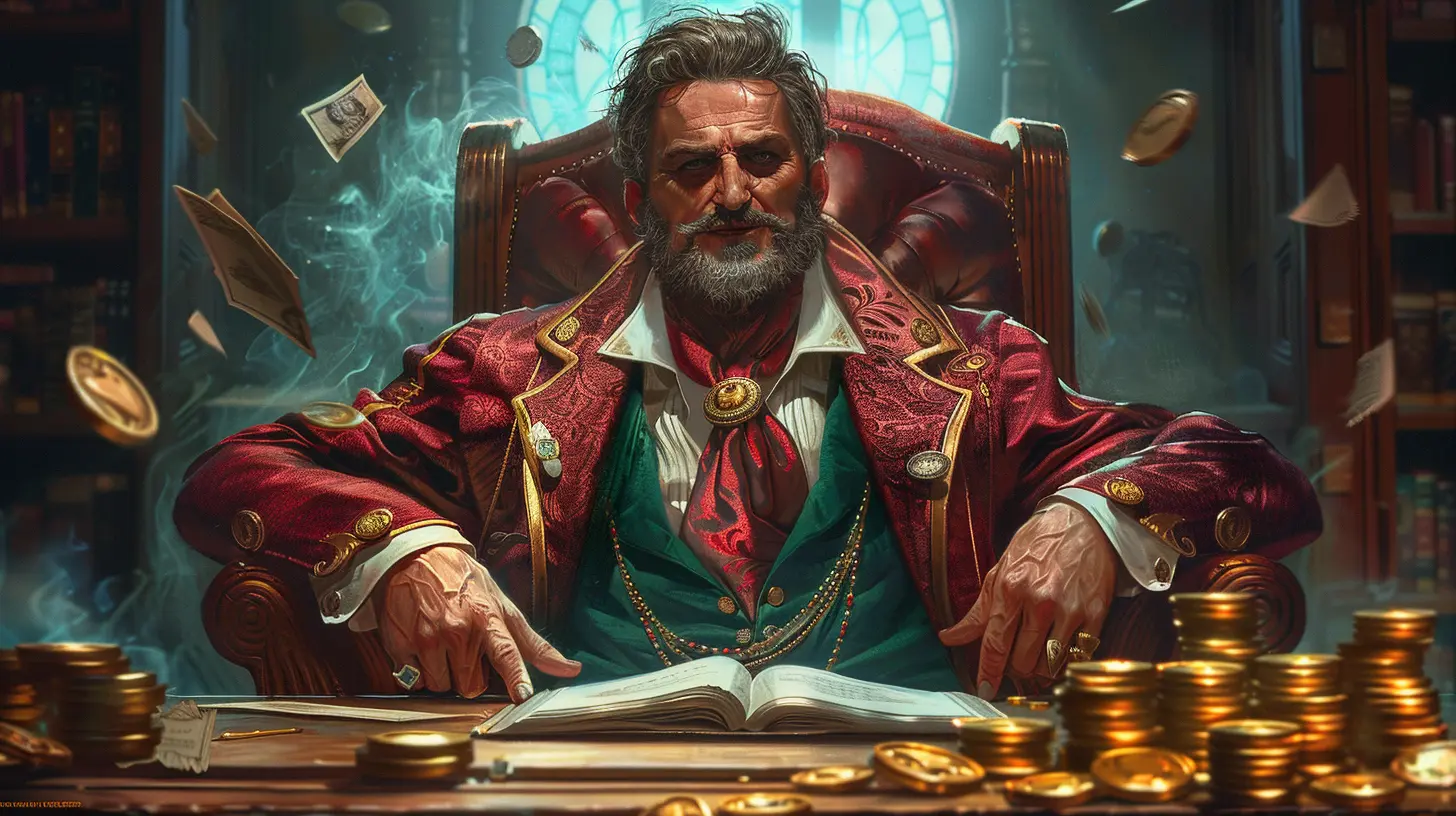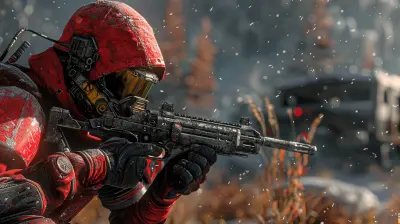The Legal Debate Around Pay to Win Microtransactions
21 September 2025
You’ve seen it. Maybe you’ve even raged about it. You’re deep into a multiplayer game, giving it your all, only to get steamrolled by some player with gear so overpowered it makes Thor look like an amateur. You dig around and, surprise… they bought all their upgrades. Welcome to the world of Pay-to-Win (P2W) microtransactions.
Microtransactions have been around for quite some time, but the “pay-to-win” variety? Yeah, that’s what really stirs the pot. And as the gaming industry balloons into a multibillion-dollar behemoth, the legal spotlight is shining brighter than ever on this controversial monetization model.
Pull up a chair—we’re diving headfirst into the legal debate around Pay to Win microtransactions, unpacking both ends of the argument, the gray areas in between, and what it could mean for the future of gaming.
What Are Pay-to-Win Microtransactions, Anyway?
Before we go zero-to-lawsuit, let’s clear up what we’re talking about.Pay-to-win microtransactions are in-game purchases that give players significant advantages over others. We're not talking about cosmetic skins or fun character dances—this is about real, game-altering boosts. Think buying powerful weapons, leveling up faster, unlocking premium content that affects gameplay mechanics directly.
Games like “Clash of Clans,” “FIFA,” and even "Call of Duty" have stirred the pot with mechanics that let players pay their way to the top. The result? A lot of raised eyebrows, more than a few slammed keyboards, and a growing pile of lawsuits and legal questions.
The Heart of the Legal Debate
At its core, the legal debate on P2W microtransactions revolves around fairness, consumer rights, gambling laws, and protection of minors. It’s not just about whether it’s annoying or unethical—it’s about whether or not it's legal.Let’s break it down.
1. Are P2W Microtransactions a Form of Gambling?
This is where the legal fire really started burning. Some folks argue that buying loot boxes or randomized power-ups is basically gambling. You're spending real money for a chance at something valuable… or something totally useless. Sounds kinda like a slot machine, right?Countries like Belgium and the Netherlands didn’t wait around to debate it for too long. They cracked down hard, outright banning loot boxes in many games, labeling them as gambling. And companies like EA had to yank content from their titles or face legal consequences.
Meanwhile, other regions (like the U.S.) have taken a softer, slower path—looking into it, for sure, but stopping short of slapping on federal bans. The legal grey zone comes from how these microtransactions are framed. Is it a purchase, a reward, a chance-based mechanism, or all of the above?
2. Targeting Minors: A Dangerous Game?
Here’s where things get a little more intense. Kids are a massive part of the gaming demographic, and let's be honest—they're also the most likely to beg parents for a shiny new character just to beat their friends.That brings up two huge legal concerns:
- Are kids being manipulated into spending money?
- Do parents even understand what their kids are buying?
In-game currencies like "gems" or "V-Bucks" add another layer of confusion. It’s not always clear how much real money is being spent, leading some regulators and consumer protection agencies to suggest that games are intentionally misleading.
Several lawsuits have even accused developers of unfair marketing and exploiting cognitive weaknesses in children. When your business model depends on players not fully understanding what they’re buying, you’ve got a problem—and courts worldwide are starting to agree.
3. Transparency and Disclosure
Another part of the legal debate focuses on disclosure. Are developers being upfront about the true cost of gaming? Not always.In some titles, you might need to spend hundreds—or even thousands—of dollars to stay competitive. But if that isn't made crystal clear upfront? You could argue that players are being misled.
The UK, for instance, has been pushing for better transparency. There’s been talk about rating games that include microtransactions differently, or even requiring warnings much like we see on cigarette packs (okay, maybe not that extreme, but you get the idea).
4. The Concept of "Digital Goods Ownership"
Another complex issue? Ownership. When you buy something in-game, do you actually own it? Technically, no. What you’re getting is a license to use that item under the game’s terms and conditions. This becomes a legal quagmire—if the servers shut down or your account gets banned, your digital purchases vanish.Imagine spending hundreds on a virtual sword, only to lose everything because the game's developer stops supporting the title. That’s not just heartbreaking—it’s legally murky.
Developers' Defense: Why P2W Is Here to Stay
To be fair, game studios aren’t just sitting there twirling their evil mustaches. They've got reasons—some understandable, some a little harder to swallow.Let’s hear them out.
1. Games Are Expensive to Make
A modern AAA video game can cost upwards of $100 million to produce. That’s not chump change. Game prices have stayed relatively flat ($60-ish for decades) while development costs have exploded.So where does the extra money come from? Microtransactions. Especially in free-to-play games, this model funds ongoing updates, servers, and content drops.
2. It's Completely Optional (In Theory)
“Hey,” developers say, “You don’t have to buy anything. You can grind and earn it.” True, but only in theory. In practice? That grind can be soul-crushing and take dozens—sometimes hundreds—of hours.It’s like saying, sure, you can eat for free… if you plant your own garden, wait four months, and learn how to cook. Most folks will take the drive-thru.
The Ethical vs. Legal Line
Just because something’s legal doesn’t mean it’s right. That’s where the ethical debate often jumps ahead of legislation. And in many ways, public outcry has driven more change than courtroom battles.Games that lean too heavily on aggressive microtransactions get dragged in reviews, social media, and even YouTube exposés. Remember the backlash against “Star Wars Battlefront II”? It was so intense, EA had to rework almost the entire system.
Legal reform is slow, but consumer pressure is immediate. That noisy rise of player voices? Yeah, that’s having an impact.
How Different Countries Are Responding
Here’s a quick rundown of how various nations are tackling the legal issues around P2W microtransactions:| Country | Legal Status | Actions Taken |
|----------------|--------------------------------------------------|----------------------------------------------------------------|
| Belgium | Loot boxes banned (considered gambling) | Games with loot boxes removed or modified |
| Netherlands | Strict regulations on randomized purchases | Fines issued to non-compliant game publishers |
| United Kingdom| Investigating microtransactions | Proposed tighter disclosure and industry regulation |
| United States | No federal ban (yet) | Ongoing state-level lawsuits and discussions |
| China | Requires odds disclosure for loot boxes | Limited daily purchases for minors |
| South Korea | Strong consumer protection laws | Developers fined for hidden probabilities |
What Could the Future Look Like?
We’re at a crossroads. The legal system is (finally) catching up to the digital age, and gaming is right in the spotlight.Here’s what might be on the horizon:
- Age-Based Restrictions: Separate microtransaction rules for kids and adults.
- Mandatory Transparency: Clear pricing, drop rates, and true costs.
- Spending Limits: Caps on how much can be spent in a certain time period.
- Accountability for Devs: Legal obligation to protect players from predatory design.
But honestly? It’s not just about governments pulling the strings—it’s up to us, the players, to push for fairness.
Closing Thoughts: Is Pay-to-Win Cheating or Capitalism?
Look, the pay-to-win debate isn’t black and white. Gamers hate it, devs say they need it, and lawyers are still trying to define it. It’s the digital Wild West, and we’re all living in it.But one thing is clear: the gaming industry is under the microscope like never before. As more eyes turn toward P2W mechanics—from angry players to lawmakers—change is coming. The question is, will it come from legislation… or from the people who actually play the games?
If you’re tired of being outgunned by someone’s credit card, let your voice be heard. Because in the end, what defines the future of gaming isn’t just code—it’s community.
all images in this post were generated using AI tools
Category:
Pay To Win GamesAuthor:

Audrey McGhee
Discussion
rate this article
2 comments
Daphne Oliver
Great insights! Understanding these legal aspects is vital for shaping a fair gaming future!
December 22, 2025 at 5:10 PM

Audrey McGhee
Thank you! I'm glad you found the insights valuable—understanding these legal aspects is crucial for ensuring a balanced gaming environment.
Sienna McKee
This article highlights the ongoing legal and ethical challenges of pay-to-win microtransactions in gaming. It raises important questions about fairness, player engagement, and the responsibilities of developers in creating balanced gaming experiences.
September 21, 2025 at 3:34 PM

Audrey McGhee
Thank you for your insightful comment! Indeed, the legal and ethical implications of pay-to-win microtransactions are crucial for fostering a fair gaming environment and ensuring responsible development practices.


